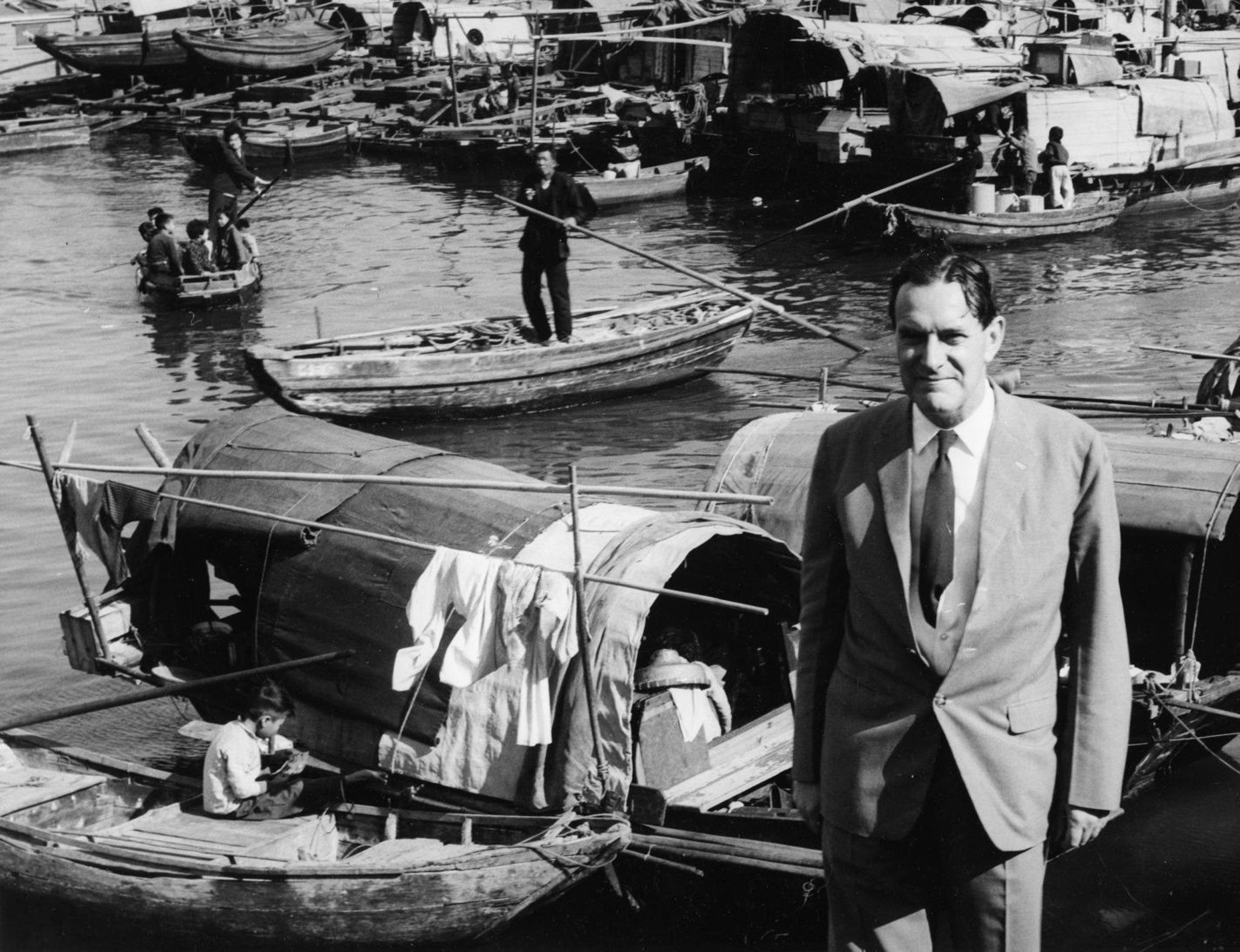Obituary: Anthony Lawrence
Journalist who reported from the Far East for the BBC across three decades

Anthony Lawrence, who has died at the age of 101, was a prime example of what has been called the golden age of BBC foreign correspondents, a professional whose focus was always on the story rather than personal projection. He spent most of his long career in the Far East, reporting on stories as hazardous and as difficult as the Vietnam war and the state of China, at a time when that country was shrouded in secrecy.
When he was posted to the Far East in the 1950s the Radio Times described him as “a BBC man of the old school: courtly, cultured, gentle and polite.” The Today programme's John Humphrys said he was inspired by Lawrence's talent for distilling complicated themes into the instantly accessible through his eye for the telling details. Citing him as the man who stirred his own ambition to become a foreign correspondent, Humphrys described him as “old-fashioned, urbane, thoughtful and civilised.”
He recalled: “When he came on the wireless I immediately felt I was there, accompanying him on his travels. He managed to convey, in a very powerful and creative way, the mysteries of the east. His presentation skills were second to none. I could have listened for hours – he really was godlike to me.” Although his spell as a BBC correspondent ended in the 1970s, Lawrence remained in Hong Kong for many more decades, devoting much effort to aiding refugees.
There had been tragedy in his earlier life. During the Second World War his first wife, Sylvia, and their unborn child were killed when their shelter was hit by a German bomb. He always remembered receiving the telegram which told him that “I had lost them both.” But by the end of the war he had found a new partner, meeting and in 1946 marrying a German woman, Imgard Noll, who was to be his wife for the next half-century.
Anthony John Lawrence, one of five children, was born in London in 1912 and attended King's College School in Wimbledon. His father was a clerk who disapproved of his going into local journalism, largely because his Uncle Arthur, once a well-known journalist, had gone downhill. His wife had left him, he lived in a bedsit and, in Anthony's words, “had the crumpled look of a man who had not lived wisely but well.”
When war broke out Lawrence joined up, becoming a captain in the Royal Artillery. At war's end he was assigned, due to his journalistic experience, to a unit instructing German journalists how to set up new, denazified, publications. During this work he fell for a young German girl, Irmgard Noll. Demobbed in 1946, he married her and spent an uneventful decade working as a sub-editor in a BBC newsroom before being offered the post of Far East correspondent.
At first he hesitated, since he disliked both heat and “small planes tied with string.” But he went, working for the BBC in Singapore and Hong Kong until his retirement in 1975.
Over two decades he reported from Bangladesh, Malaysia, Singapore, Indonesia and many other countries. He always paid tribute to his wife for her support and her talent for languages, which helped him establish contacts with many Hong Kong residents with relatives on the other side of what was known as China's “Bamboo Curtain”.
His alertness meant he was one of the first to appreciate that in the late 1950s China was in the grip of one of the world's worst-ever famines. The official line of the Chinese government was that all was well, but Lawrence spotted notices in Hong Kong shops stating that food parcels could be sent into China, and when he checked with the post office he discovered that thousands were being sent each week. Before then it had not been realised that a famine which would kill more than 10 million people was raging.
He was regularly sent to cover Vietnam, and one of his commentaries from there is still cited as a masterly example of how a correspondent can allow the horrors of war to speak for themselves, without histrionics. “It's such a chancy business, this patrolling,” he reported. “You can go for months and meet nothing, and then three times in a week you meet some awful ambush or fire-fight.
“The man next to you goes down yelling with a leg blown off. The platoon commander is bleeding to death against a tree. It's over in 15 minutes, but it's a nightmare; and it may come again tomorrow night.”
One of the oldest reporters to cover the conflict – he was braving the jungle at nearly 60 – he kept going back. Eventually, however, he admitted, “I think I'm getting a bit old for this.”
He was highly active in retirement, writing a number of books on China. He also received various honours, including an OBE, in recognition of his work as a volunteer with the International Social Service. After 40 years as a volunteer a local refugee centre was named after him. His efforts included championing schooling for tens of thousands of Vietnamese refugee children during the 1980s, and providing humanitarian assistance for some 5,000 needy asylum seekers and torture claimants each year.
The BBC's Director General Tony Hall said, “Anthony was among the most courageous and tenacious journalists, one of the world's most admired foreign correspondents.”
Anthony John Lawrence, journalist: born Wimbledon 12 August 1912; OBE; married firstly Sylvia (deceased), 1946 Irmgard Noll (died 2001; one son deceased); died Hong Kong 24 September 2013.
Subscribe to Independent Premium to bookmark this article
Want to bookmark your favourite articles and stories to read or reference later? Start your Independent Premium subscription today.

Join our commenting forum
Join thought-provoking conversations, follow other Independent readers and see their replies